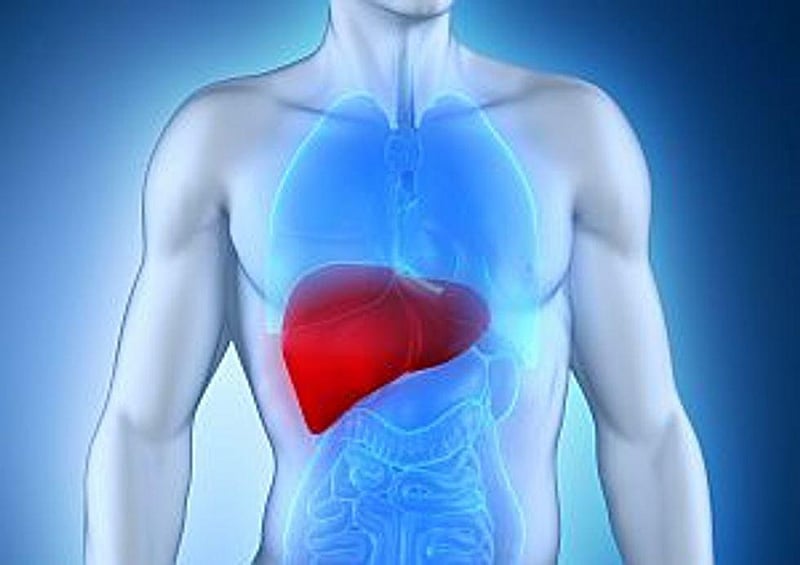Patient Resources
Get Healthy!
Demand for Liver Transplant Rises Sharply Among Older Americans
- November 17, 2021
- Dennis Thompson HealthDay Reporter

More older folks are winding up on liver transplant waiting lists than ever before, as obesity and alcoholism supersede hepatitis C as the main cause of liver failure in the United States.
The percentage of liver transplant candidates aged 65 or older rose from 9% in the early 2000s to 23% by 2020, researchers found. Most seniors' liver failure is due to fatty liver disease, in which excess fat stored in the liver causes inflammation and eventually scarring.
About 39% of older liver transplant candidates had fatty liver disease in 2020, compared with 13% in the early 2000s.
"Older patients right now are representing a substantial and growing share of the liver transplant population," said lead researcher Maria Stepanova, a senior biostatistician at Inova Health System in Falls Church, Va. "It's likely to increase even more because separate studies show [fatty liver disease] keeps growing and has no sign of slowing down as an indication for end-stage liver disease."
For this study, Stepanova and her colleagues analyzed data on more than 31,200 liver transplant candidates using the U.S. Scientific Registry of Transplant Recipients.
Their findings represent a sea change from trends in the mid-to-late 20th century, when virtually all liver transplants occurred in folks in their 40s and 50s, Stepanova said.
Most liver failure was caused by hepatitis C spread through sexual contact or drug use during those decades, and people older than 50 weren't even allowed on transplant lists from the 1960s through the 1980s because of their poor survival chances, Stepanova noted.
Hepatitis C now can be treated and cured, lowering the chances that the virus will cause chronic liver disease. Accordingly, the proportion of seniors with hepatitis C needing a liver transplant has decreased from 27% to 18%.
But the obesity epidemic and all of the long-term health problems related to excess weight -- diabetes, high cholesterol, high blood pressure, kidney failure -- are now in the driver's seat when it comes to liver failure.
"Part of the reason you're seeing more older patients present is that these metabolic conditions often accumulate as people age and so they present with liver failure at a later stage," said Dr. Kimberly Brown, chief of gastroenterology and hepatology for the Henry Ford Health System in Detroit.
Alcohol use also continues to be another reason for liver transplant among seniors, with 1 in 5 patients now awaiting a new liver due to alcoholic liver disease, the results showed.
The COVID-19 pandemic is likely to make alcoholic liver disease an even more powerful factor in liver transplants.
A study published last month in the journal JAMA Network Open found that the number of people who got a new liver or were put on a waiting list due to alcoholic hepatitis was 50% higher than what would have been expected based on pre-pandemic patterns.
Older and younger patients tend to get liver transplants at about the same rate -- 54% for seniors, compared with 59% for those under 65, results showed. Both groups have a similar chance of dying while waiting for a new liver, around 12%.
But seniors have a higher rate of removal from the waiting list due to deteriorating health, about 14% compared with 9% for younger patients.
Long-term outcomes among older liver transplant patients aren't as good as for younger patients, but they are improving, Brown and Stepanova noted.
The five-year survival rate for senior liver transplant recipients currently is 77%, up from around 60% in the early 2000s, Stepanova said.
The reason for worse survival among seniors is that they have more chronic health problems that they've accumulated over the years, and also suffer more dire side effects from the immune-suppressing drugs that they need to take post-transplant, said Brown, who wasn't part of the study.
"When you stack all of those metabolic diseases on top of age, that is what in large part influences poorer outcomes in this age group," she said.
To improve the chances for senior patients, doctors are experimenting with performing weight-loss surgery at the same time as a person's liver transplant, Brown said.
"This disease can recur after transplant and can lead to graft loss after transplant," Brown said. Weight loss surgery "could be a strategy we use to improve outcomes following transplant."
The findings were presented recently at the American Association for the Study of Liver Diseases' online annual meeting. Research presented at medical meetings is considered preliminary until published in a peer-reviewed journal.
More information
The U.S. National Institutes of Health has more about liver transplants.
SOURCES: Maria Stepanova, PhD, senior biostatistician, Inova Health System, Falls Church, Va.; Kimberly Brown, MD, chief, gastroenterology and hepatology, Henry Ford Health System, Detroit; American Association for the Study of Liver Diseases, annual meeting, Nov. 12-15, 2021, online

